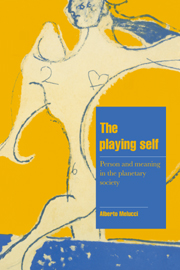Book contents
- Frontmatter
- Contents
- Introduction
- 1 The challenge of the everyday
- 2 Needs, identity, normality
- 3 Metamorphosis of the multiple self
- 4 The inner planet
- 5 Body as limit, body as message
- 6 On taking care
- 7 The abyss of difference
- 8 Amorous senses
- 9 Inhabiting the earth
- 10 A eulogy to wonder
- Epilogue
- Bibliographical note
- References
- Index
3 - Metamorphosis of the multiple self
Published online by Cambridge University Press: 04 October 2009
- Frontmatter
- Contents
- Introduction
- 1 The challenge of the everyday
- 2 Needs, identity, normality
- 3 Metamorphosis of the multiple self
- 4 The inner planet
- 5 Body as limit, body as message
- 6 On taking care
- 7 The abyss of difference
- 8 Amorous senses
- 9 Inhabiting the earth
- 10 A eulogy to wonder
- Epilogue
- Bibliographical note
- References
- Index
Summary
Nomads of the present
Ever since its advent, the modern world has offered individual action an open field of possibility. The myths of progress and liberty have fed the Promethean dream of freeing mankind from natural constraints, by submitting nature to the dominion of technological power. Moreover, the promise of freedom has been extended to regard also the life of the individual, for whom it envisages an irresistible progress towards autonomy and full realization of the personal potential.
These ideas have constituted the historical framework of modernity in all its variants, whether rationalist or Utopian, and, in spite of the vicissitudes of its career, this inheritance still encompasses the entire gamut of our hopes and our fears.
The scenario of complexity, of a system which by now irreversibly incorporates the whole planet and, to an equal measure, faces a future jeopardized by prospects of catastrophe, has deeply eroded the optimism of the myths of salvation. None the less, we still hold on to the most exalting and dramatic legacy of modernity: our need and duty to exist as individuals. We, namely, can think of ourselves as subjects of action capable of purposive and meaningful behavior, but at the same time we also function as the coordinates in a network of communality and communication.
Yet new dilemmas have arrived to beset the everyday lives of the children of disenchantment. In information societies our consciousness attains new levels of reflexivity.
- Type
- Chapter
- Information
- The Playing SelfPerson and Meaning in the Planetary Society, pp. 42 - 56Publisher: Cambridge University PressPrint publication year: 1996

